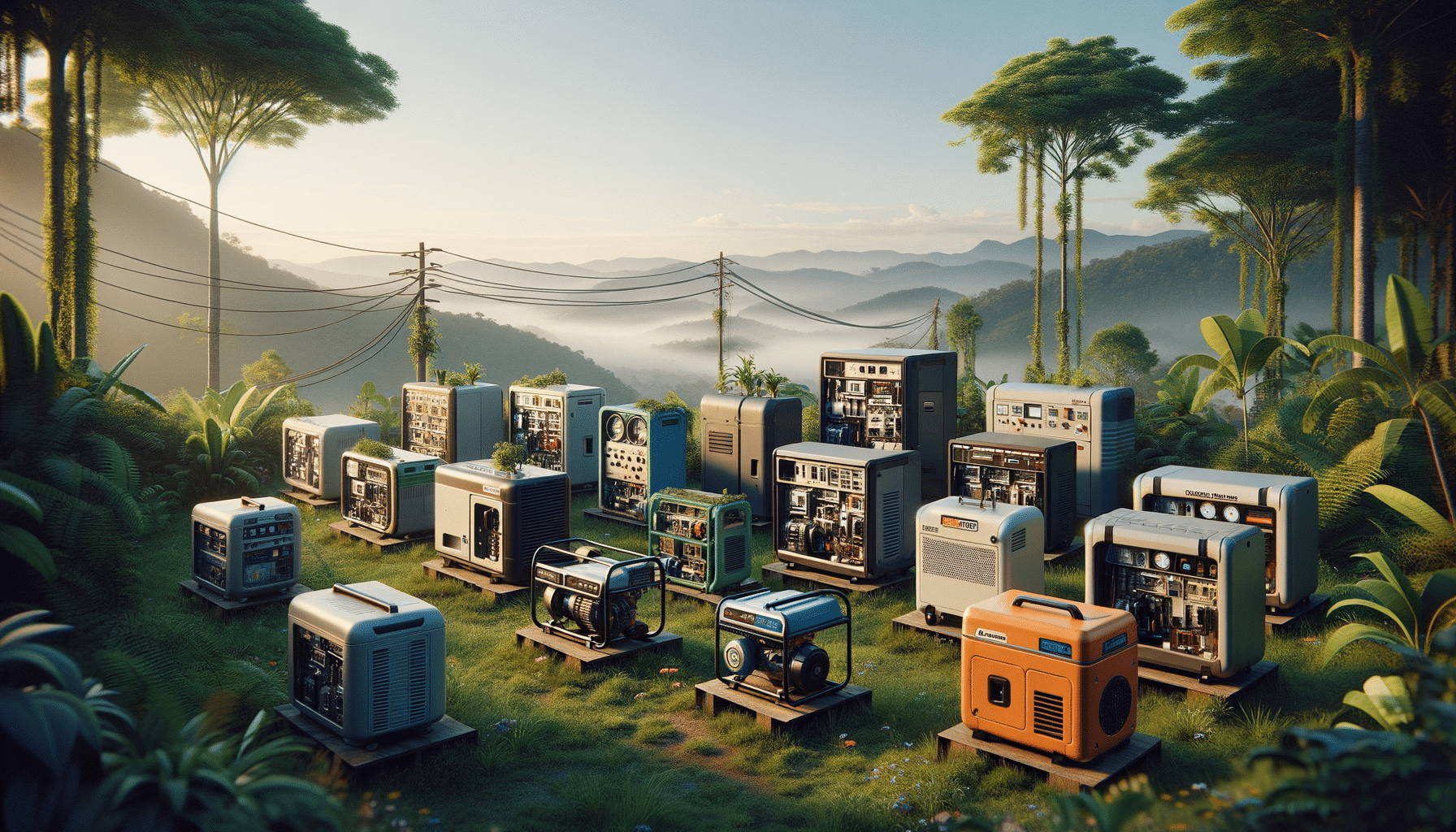
Understanding Electric Generators in Brazil: Types, Uses, and Buying Tips
Introduction to Electric Generators in Brazil
In a country as vast and diverse as Brazil, the need for reliable power sources is paramount. Whether for residential, commercial, or industrial purposes, electric generators play a crucial role in ensuring continuous power supply, especially in areas prone to power outages or remote regions with limited grid access. This article delves into the different types of electric generators available in Brazil, their applications, and key factors to consider when making a purchase.
Types of Electric Generators
Electric generators in Brazil come in various types, each suited to different needs and environments. The most common types include:
- Portable Generators: These are versatile and ideal for temporary power solutions. They are commonly used for outdoor events, construction sites, and as backup power for homes.
- Standby Generators: Permanently installed and designed to automatically provide power during an outage. These are perfect for homes and businesses that require uninterrupted power.
- Inverter Generators: Known for their quiet operation and fuel efficiency, inverter generators are excellent for sensitive electronics and recreational activities like camping.
- Industrial Generators: Built for heavy-duty use, these generators are essential for factories, large-scale construction projects, and commercial facilities.
Each type of generator has its advantages and specific use cases, making it important to assess your power needs before deciding on the right one.
Common Uses of Electric Generators
Electric generators in Brazil are utilized across various sectors due to their ability to provide reliable power. Some of the common uses include:
- Residential Use: Homeowners often rely on generators during power outages to keep essential appliances running, such as refrigerators, lights, and heating or cooling systems.
- Commercial Use: Businesses use generators to ensure operations continue smoothly during power failures, protecting from financial losses due to downtime.
- Industrial Use: In industries, generators are crucial for running machinery and maintaining production schedules, especially in areas with unstable power supply.
- Recreational Use: For outdoor enthusiasts, portable generators are perfect for camping and outdoor events, providing power for lights, cooking equipment, and electronic devices.
The versatility of electric generators makes them an indispensable asset in both urban and rural settings.
Buying Considerations
When purchasing an electric generator in Brazil, several factors should be considered to ensure you select the right model for your needs. These include:
- Power Output: Determine the wattage required to power your intended devices and appliances. This will guide you in choosing a generator with adequate output.
- Fuel Type: Generators can run on various fuels such as gasoline, diesel, propane, or natural gas. Consider availability and cost of fuel in your area.
- Noise Level: Especially for residential use, selecting a generator with a lower noise output can be crucial for comfort and compliance with noise regulations.
- Portability: If you need a generator for multiple locations, consider a portable model that is easy to transport.
- Brand Reputation and Warranty: Opt for well-regarded brands that offer reliable customer support and warranties for peace of mind.
Careful consideration of these factors will help ensure your investment in a generator is both cost-effective and meets your power requirements.
Conclusion
Electric generators are vital in Brazil for providing a reliable power supply in a variety of settings. Understanding the different types and their uses helps in making informed choices when purchasing a generator. By taking into account factors such as power output, fuel type, noise level, and portability, you can select a generator that best suits your needs. As Brazil continues to develop, the demand for efficient and dependable power solutions will only grow, making electric generators an essential component of modern living.